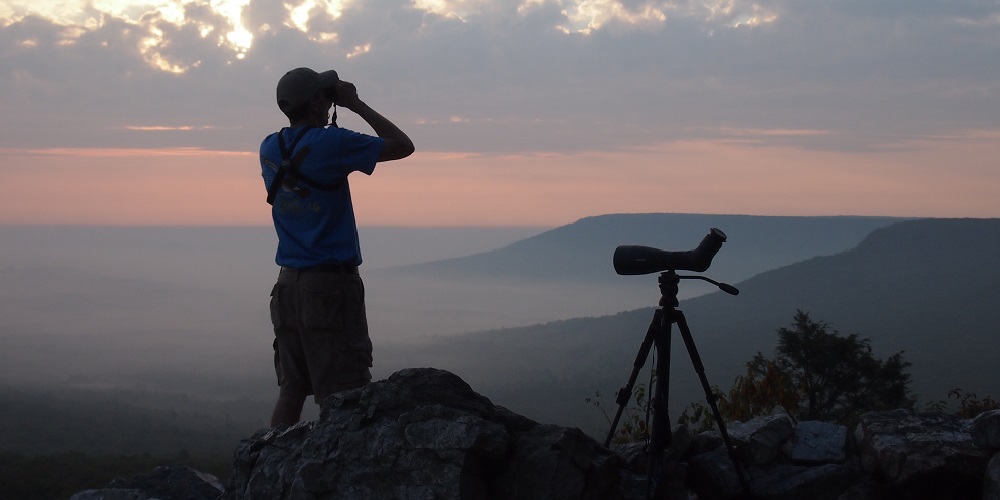 Hawk Mountain Sanctuary
Hawk Mountain Sanctuary
Earlier this month Hawk Mountain Sanctuary biologists published a new paper in collaboration with researchers in Canada and across the United States that suggests global climate change is creating long-term shifts in seasonal migration timing and the amount of time eastern North American raptors spend on their breeding grounds.
The article, “Long-term phenological shifts in migration and breeding-area residency in eastern North American raptors” was published in The Auk: Ornithological Advances on September 20. Dr. Jean-Francois Therrien, the Sanctuary’s senior research biologist, served as lead author with co-authors Director of Long-term Monitoring Dr. Laurie Goodrich, Director of Conservation Science Dr. Keith Bildstein, and seven other collaborators.
The research suggests an overall delay across species in most eastern North American raptors in autumn migration passage, which correlates with an increase in temperature. Combining those results with earlier spring migration data further suggests that most species in this region are increasing the amount of time they spend on their breeding grounds.
Hawk Mountain scientists led the work that used count data from seven North American watch sites, including Hawk Mountain Sanctuary (Kempton, PA), Hawk Ridge (Duluth, MN), Holiday Beach (Ontario, Canada), Lighthouse Point (New Haven, CT) Montreal West Island (Québec, Canada), Mount Peter (Warwick, NY), and Waggoner’s Gap (Landisburg, PA).
“The study indicated that since 1985, most raptors spend two additional days per decade north of the seven hawkwatch sites. This supports the notion that global change may be having profound impacts on population and ecosystem dynamics in this avian guild,” explained Dr. Bildstein.
Find a PDF of the paper (#285) here.
The 2,500-acre Hawk Mountain Sanctuary is the world’s first refuge for birds of prey and is open to the public year-round by trail-fee or membership, which in turn supports the non-profit organization’s raptor conservation mission and local-to-global research, training, and education programs. To learn more about Hawk Mountain and its raptor conservation efforts, visit www.hawkmountain.org.